May 14, 2021
The Tokyo Olympics: Keeping The Torch Burning
Arguably the most iconic sporting spectacle on the planet, The Olympic Games is as historic as it is culturally rich—and downright exciting.
Every four years, the world gears up for another summer of sporting triumph. But, as you’ll know, the 2020 Summer Games in Tokyo came to a grinding halt at the hands of the COVID-19 pandemic. As the crisis wound its way around the world, event organizers were forced to postpone the Tokyo Games to no later than summer 2021.
As of time of writing, the Games are still expected to go ahead but there are many conflicting opinions on the wisdom of this, as well as the motivations behind it.
Whatever is decided, it is still worth looking at how the resilient and legendary sporting colossus that is the Olympics has brought the brand and modern marketing efforts into 2021.
To mark this momentous effort, we’ll take a look at how the marketers and organizers have kept the buzz going in challenging times as well as their pivoted approach to marketing this most prestigious of events.
On your marks, get set—go!
Responding to an Olympic-sized cancellation
On 30th March 2020, the International Olympic Committee (IOC) announced the rescheduling of the Tokyo 2020 Games from July 23 to August 8, 2021, with the Paralympic Games to run between August 24 and September 5, 2021.
This swift and sharp change threw event organizers for a loop, as well as droves of sponsors and brands that were planning to launch Olympic-themed marketing campaigns.
Wasted time and assets as well as potentially redundant digital ad spends were among major campaign concerns—but, in the digital age, those who are willing to adapt and innovate will often reach the finish line first.
This major ellipsis in the games’ history threw a colossal shot put into the works—and to save it, adopting a digitally-led focus was the only way to jump over such an unexpected organizational hurdle.
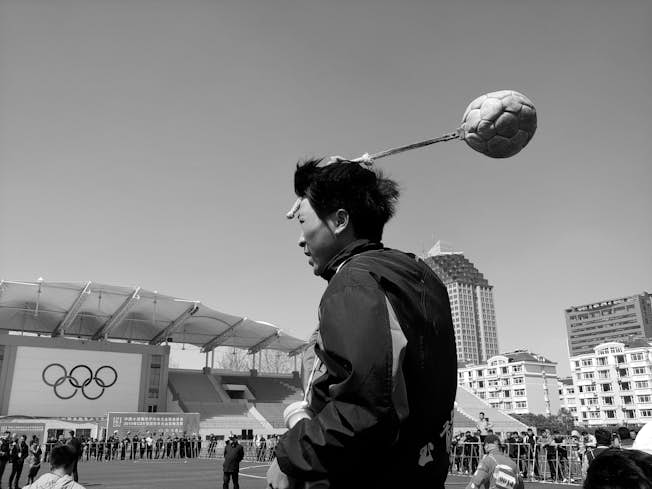
Building the buzz in times of mass isolation: Tokyo-style
From the IOC’s perspective, the first course of action was to continue referring to the games as Tokyo 2020, keeping in with the four-yearly traditions and retaining the brand buzz into summer 2021.
The next was to place emphasis on digital engagement and personal empowerment to invest people in the event personally on the long-winded lead up to summer 2021.
Going direct-to-consumer (DTC)
Christopher Carroll, the Olympic Games' marketing boss & head of digital engagement, decided to create marketing messages that were more DTC-led and people-centric to create a deep sense of connection in times of isolation.
Speaking to The Drum in July 2020, Carroll explained:
"We had to be able to not only talk the talk but to walk the walk when it came to going direct to people. The public's consumption habits have changed, greatly, and they will change again in a year, hopefully for the better.”
With this view in mind, Carroll and his Olympic marketing team considered the games’ brand values and set out to develop multi-channel content that speaks directly to fans, breaking down the barriers between viewer and athlete, such as the ‘giant workout’ video with Olympic athletes from around the world.
This 24-hour workout event was supported by a dedicated landing page filled with top fitness tips, nuggets of Olympic history, and content sponsor spotlights.
In addition to building behind-the-scenes stories around Olympic athletes, Carroll’s team focused on the theme of getting active and feeling good, together—using the hashtags #Olympicday and #stayactive to amplify the content.
The games’ official website and other platforms have also come to life within the last 12 months, populated with Olympic-inspired news updates, as well as an informative ‘meet the athletes’ section, and immersive content that allows fans to track the Olympic torch relay on its way around Japan.
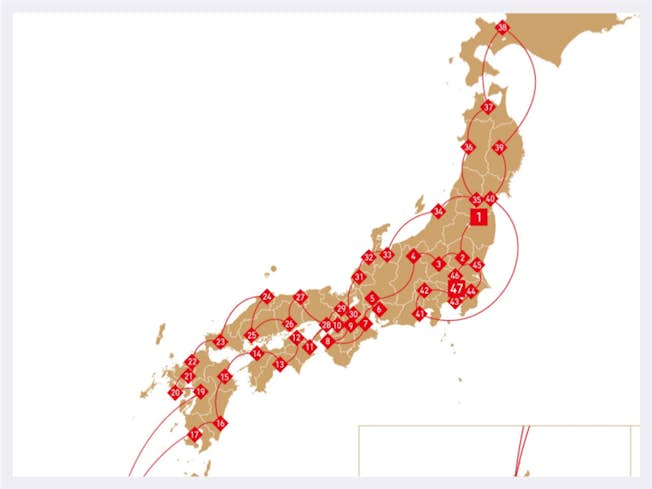
This direct and personal approach to marketing has cemented engagement of fans by placing them closer to the heart of the narrative while creating content with a big, bold, international feel—assets that match the sheer epic-ness of the Olympic Games.
The foundations of this DTC-style engagement campaign are formed by the IOC’s mission of thinking globally but acting locally.
With overseas spectators banned from attending the event in-person due to ongoing travel restrictions, leveraging the universal power of digital and going direct to the consumer has proved the best step forward for the IOC.
By delivering a cohesive mix of immersive virtual experiences, developing personal narratives surrounding the athletes, and ramping up its social media activity, the Olympic marketing team is certainly delivering.
The IOC's DTC-centric strategy has sparked awareness-boosting social media collaborations that spark the interest of younger digital natives. Media giant, Discovery, recently launched a collaboration with Snapchat to expand its Olympics content, offering users an insight into the lead up to the event with its ‘Road to Tokyo campaign.
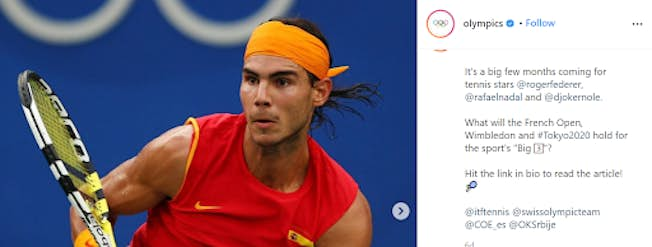
The Olympics has also created a buzz by posting regular participant profiles on its Instagram page to shine a light on various sports while amplifying its latest news content—buzz-building content created especially for the fans.
As Carroll also puts it (in conversation with The Drum), in times of great challenge marketers need to take on the Olympic mindset to succeed:
The Olympics has also created a buzz by posting regular participant profiles on its Instagram page to shine a light on various sports while amplifying its latest news content—buzz-building content created especially for the fans.
Riding the crest of an Olympic marketing wave
The abrupt postponement of the Tokyo Games caused a Mexican wave of worry among partner brands and sponsors. But, although navigating the Olympic waters was by no means plain sailing, most of the IOC’s top-flight brands and sponsors have remained onboard, showing their continued support to the event.
With a will to remain agile, many big name brands have developed content to build awareness around the games over the past 12 months, creating an ever-expanding eco-system to keep the buzz alive.
TikTok
Video-based social platform TikTok, for instance, launched its very own platform-based workout videos with Team GB, creating content using the #teamgbgames hashtag.
Not only have the official videos earned droves of fan engagement, but influencer content like professional freestyle footballer Ben Nuttall’s ‘keepie uppie’ challenge content has also proved wildly popular.
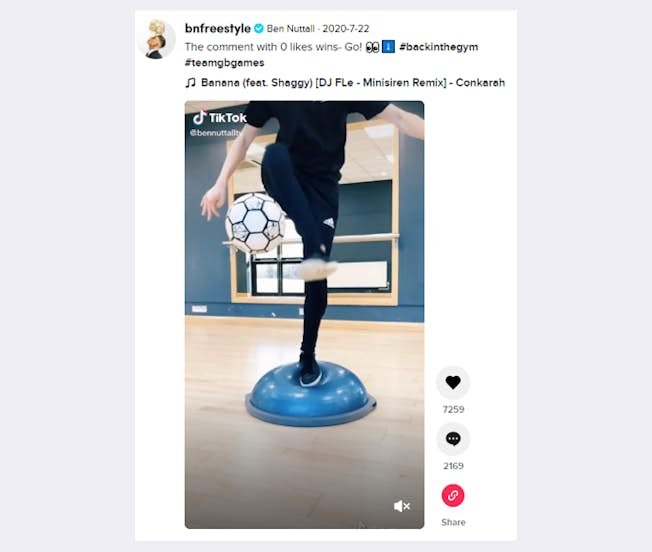
AirBnB
The relatively new Olympic sponsor, Airbnb, who signed a nine-year deal with the IOC in 2019, also stepped up to the marketing plate with a digital-first initiative that showcased the brand’s enduring passion for the Olympic and Paralympic Games.
Based on the notion that Paralympians in particular are great innovators, overcoming many barriers to achieve greatness, Airbnb hosted its very own online festival, complete with a dedicated area of its website offering exclusive event content as well as a continual lineup of personalized virtual experiences with the games’ top athletes. A campaign that has been well-received the world over.
A brand that has been forced to pivot its efforts due to the ‘stay at home’ nature of the pandemic, teaming up with the IOC and going DTC has kept Airbnb at the forefront of public consciousness while helping keep fans investing in the Tokyo Games.
This deep level of value has ultimately given fans the chance to learn invaluable lessons from Olympic sports stars while helping Airbnb expand into the experiential market—a savvy move that benefits both brand and consumer.
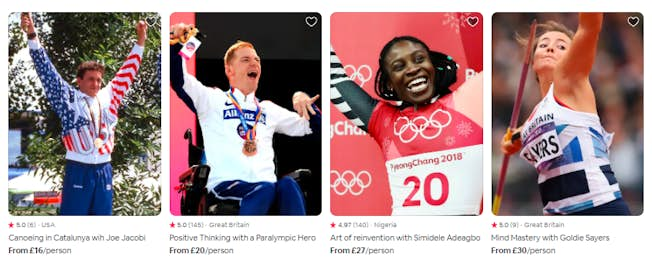
Nike
And let’s not forget Nike. To give fans an intimate portrait of the games’ major athletes, the sports retail giant tirelessly edited over 4,000 hours of real footage for its ‘You Can’t Stop Us’ campaign. This inspirational narrative of tennis stars the Williams Sisters alone has earned over nine million YouTube views to date—and counting. Another prime example of the power of fan-centric marketing.
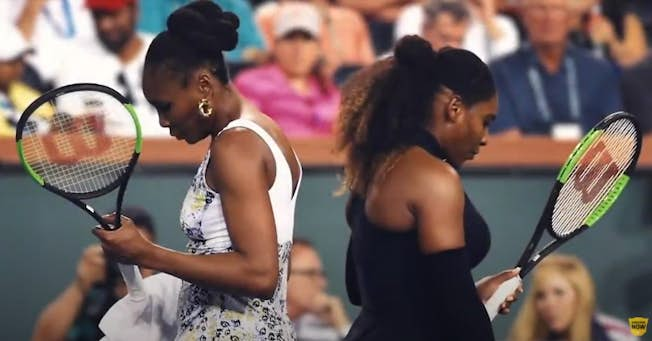
These intimate and direct digital marketing campaigns are two of many people-focused initiatives that have risen to the surface since July 2020—a testament to the agility and passion of the Tokyo Olympics as well as the endless potential of the digital age.
Shining the Torch into a bold new digital future
So, even if this year’s event is rescheduled, the IOC’s (and its sponsor brands’) newfound agile, people-centric approach to marketing and engagement is sure to keep the spirit alive indefinitely.
By placing a focus on the fans and empowering them to gravitate closer to the story, the Olympics has become all the more valuable. No longer are fans simply looking up at the Olympic Gods, now they can use the digital world to share in the peaks, troughs, tribulations, and triumphs with the athletes, shoulder to shoulder.
This new marketing mindset has the power to tackle sexism, racism, and ableism in sports, working towards a more inclusive world—building on the campaigns of the past 12 months to create a brighter future. Here’s to the Olympic Games.
Join the conversation! Do you have a favorite Olympics campaign you'd like to share with our member community?
Get the full picture of the world of modern marketing with our Digital Marketing Strategy course.
“There is something in the Olympics, indefinable, springing from the soul, that must be preserved.” Chris Brasher, USA track & field Olympic gold medalist
Related
Upgrade to Power Membership to continue
your access to thousands of articles, toolkits, podcasts, lessons and much much more.
Become a Power Member- Login
- View Courses
- - - -
- Courses
- Resources
- - - -
- My Account
- Change Password
- Logout





